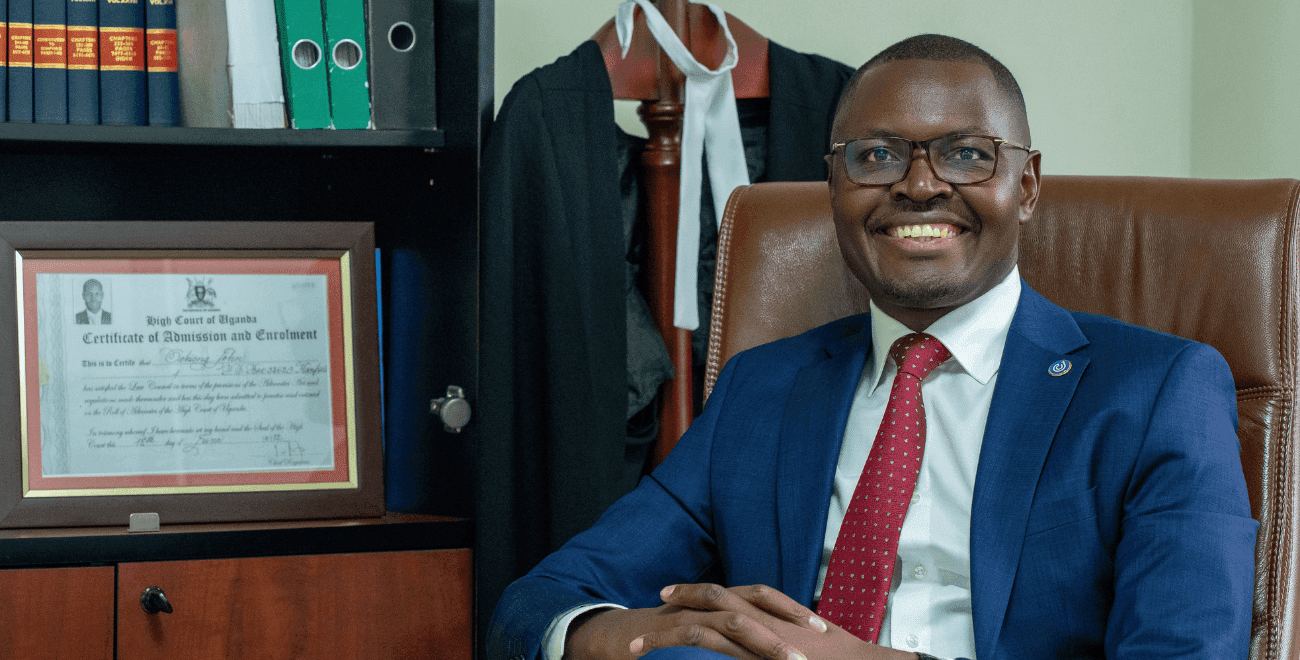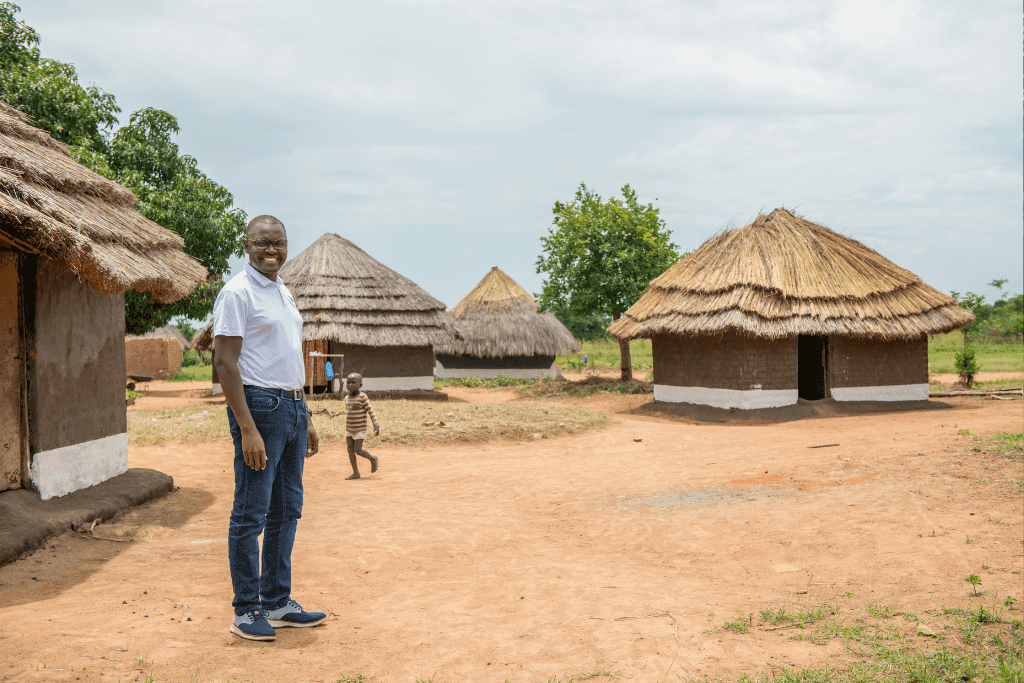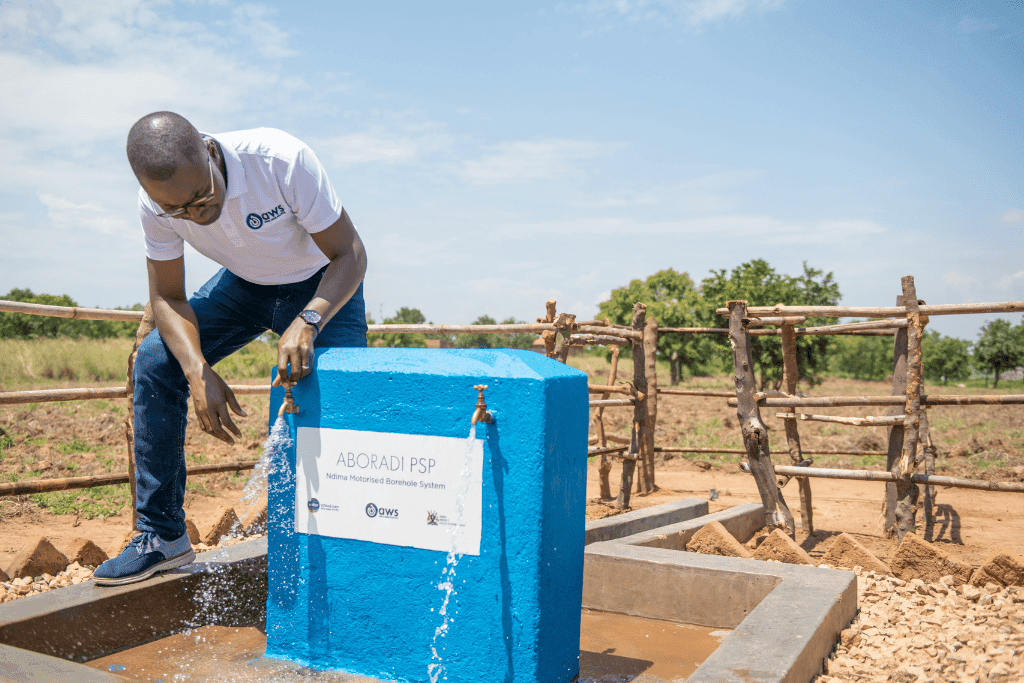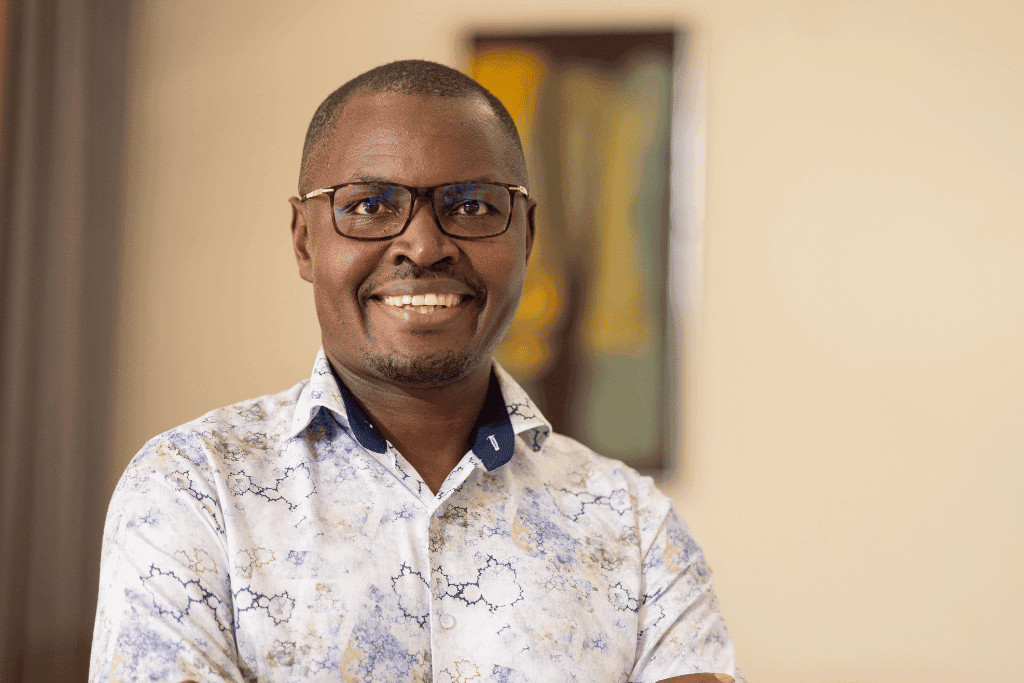Discover more
“Justice is Not for the Poor”: John’s Journey from Despair to the High Court
The boy denied justice in Uganda who amplifies the voices of the marginalised.

If you’ve ever wondered whether child sponsorship truly transforms lives, John’s story offers a compelling answer. His story includes moments of deep pain, which may be difficult to read. Yet through it all, John bears witness to the transforming love of God, which can reach into the darkest of circumstances.
Content warning: This story contains reference to suicide.
I can so clearly remember the day I came home and found my uncle waiting. I was grieving for my father who'd abandoned us after our mother died. For a moment, I thought my uncle had come to help.
But, instead of consoling my brothers and me, my uncle had come to claim our house.
Desperate for help, I travelled with my pastor to a local lawyer. But the lawyer sent us away with the words, “Justice is not for the poor.”
That sentence burned itself onto my mind. It ignited my lifelong passion for justice.
Today, I’m an advocate of the High Court of Uganda and a trustee for Compassion Uganda. I’ve secured justice for hundreds who, like my younger self, once felt powerless.
I’m also an entrepreneur with interests in energy, real estate, farming and water. My success in business has enabled my wife and me to support more than 200 girls, boys and young women through higher education, as well as fund community projects that provide renewable energy and safe water access.
But my journey here was anything but easy.
A childhood marked by loss
I grew up in rural Eastern Uganda, more than 300 kilometres from Kampala. My parents were both teachers and like any child, I had dreams. But when I was nine, my mother fell seriously ill during a pregnancy, but we didn’t understand what was happening.

Eventually, Compassion staff visiting from Kampala heard about her condition and arranged for her to be taken to a national referral hospital. That’s when we learnt the pregnancy had ended long before, but she had never received the care she needed. Her illness was traumatic and prolonged. She passed away when I was twelve.
My father, overwhelmed by grief, having lost his job while attending to our mother, began drinking heavily. In the evenings, people from the village would find him slumped on the roadside and call me with my little brothers to carry him back to our house. Eventually, he disappeared.
As the eldest child, I had no choice but to become both father and mother to my younger brothers, aged ten, eight, five and three.
“Justice is not for the poor”
After my father had gone, life became even more uncertain, filled with anguish. My uncle arrived at our home; not to comfort us, but to claim the house for himself. My brothers and I were given three days to leave.
Desperate, I ran to the village pastor. He put me on the seat of his bicycle, and we pedalled for about three hours to a lawyer he knew about. The lawyer kept us waiting for over four hours then allowed less than five minutes of his time.
After I poured out my story, he leant back and said, “Justice is not for the poor. Go find some money, then I’ll see if I can help you,” and he sent us away.
As we travelled home, I couldn’t stop thinking about his words: are the poor not worthy of justice?
Within days, my brothers and I were homeless. I vowed that one day I’d become a lawyer who would help the poor.
I spent my time searching for food, and ways to keep my brothers in school. Often, I couldn’t find food at all, and so I resorted to picking food from people’s dustbins where I encountered horrifying experiences that takes courage to share.
You can move with compassion and help rewrite stories like this. Sponsor a child today and be part of their journey.
When the church stepped in, everything changed
When Compassion began a partnership with my local church, two of my brothers and I were registered into the programme.
I didn’t miss project days; not because I was committed, but because there was bread, milk, rice and meat!
I even volunteered to wash saucepans, so that I could collect the leftovers to take home for the rest of the week. You know how much boys eat! I was always hanging around the project kitchen because there was hope for the next meal.
My peers gave me a nickname: Mr. Membe. “Membe” is the word we used for the last part of rice that stays on the saucepan. That’s what I used to collect.
Sponsorship doesn’t just provide essentials, it restores dignity. It tells a child, “You matter.” Sponsor a child today.
A kind-hearted woman in our community gave us accommodation and the church’s Compassion project meant we could continue in school. The project staff came alongside us; they showed us love and they looked after our health.
I also began receiving letters from my sponsors, written on those beautifully designed Compassion pages. They’d tell me, ‘John, we’re praying for you. John, we know you’ll make it.’ Those letters meant so much to me.
Crying under my pillow every night
The ongoing challenge of supporting my brothers, and the trauma of the way we’d lost our parents and had our home taken from us, meant my schoolwork suffered and I watched our world crumble every day.
After I graduated from the Compassion programme, I found myself in a technical institute studying plumbing. Plumbing was about as far from my dream of becoming a lawyer as I could get.
I felt so hopeless and became so thin. I bottled up my feelings and cried under my pillow every night because I couldn’t see myself working at this for the rest of my life.
I gave in to despair because my dreams had slipped away. I walked into the forest with a rope, looking for which tree to hang myself on.
By God’s grace, a woman collecting firewood saw me and asked, “What are you doing with that rope?” That moment saved my life.
When Compassion staff heard about what I was going through, they quickly met with me. Emmanuel, one of the project workers who’s actually now the National Director for Compassion Uganda, sat me down and asked what was going on.
I finally opened up about my dream, and they helped me transfer back into high school. They also supported my brothers, so I didn’t have to shoulder the responsibility.
Compassion reignited my dream
Now, I began to excel. I became the top student in my year. But I still doubted myself! This caused me to list “teacher” as my first university choice and “lawyer” second. I got a government-funded place at university, but for teaching.
“My dream is to be a lawyer,” I told the university. But they said, “If that was your dream, you would have made it your first choice.” They didn’t understand that all my struggles had made me feel I wasn’t good enough. I felt defeated and resigned, but I chose to work as I began my teaching career.
I wrote to my sponsors, telling them how much I wanted to become a lawyer. They kept encouraging me, ‘don’t give up on your dream.’ My sponsors, Scott and Crystal helped me keep hope alive that one day God would answer my prayers. Whenever things felt tough, I’d remind myself, ‘John, you’ve come this far because people you’ve never met believe in you.’
Then an incredible thing happened. Emmanuel, my old project director, told me they’d help me fulfil my dream to train as a lawyer if I was successful in the University's admission programme. So, I returned to university, and I worked incredibly hard!
Upon graduation, I was given a government post to work as a magistrate. I worked in this role for six months, but I realised that something didn’t sit right.
Every day I would go to court and sit at the bench as the judge. But I saw that the most vulnerable people were not well represented. I was on the wrong side of the bench!
So, although I had a good stable job, in faith, I resigned and started to work for my local church, before then starting my own law firm.
Now, every day, I meet with people who are going through experiences that are even worse than my own was. I use the dividends from my higher profile cases to fund pro bono work where I represent poor people without pay; people who normally would never receive help or justice, because justice is for everybody.
A voice for justice
Today, I handle hundreds of cases without pay. I advocate for vulnerable individuals, especially for girls who get cruelly exploited when they’re living in poverty.
Theirs are heartbreaking stories. I not only support their pursuit for justice; my wife and I fund their education and any counselling support they need. I meet regularly with a counsellor to protect my own mental health, because walking with those individuals can feel very hard emotionally.
I’m doing what I was born to do. Through my suffering, God prepared me to be a person who fights for justice and never gives up.

My sponsors opened the door for me to receive love
Being sponsored through Compassion meant that a family I’ve never met gave not because they had much, but because they had love.
They knew that somewhere in another part of the world, there was a boy called John. They thought, ‘let’s impact his life, because we know that his life will not remain the same.’ And indeed, my life has never been the same.
Probably I would be dead right now if I hadn’t had that opportunity to join my local church’s project.
My sponsors opened the door for me to receive love and support at a time when I was completely vulnerable and overlooked.
God made me who I am today
There were times in my childhood when I didn’t want to hear from God. But I’ve come to see that I would not be who I am today were it not for God.

I grew up with a totally broken family. But today I have a beautiful, lovely family – a wife and a son, and all my brothers are doing well, we’re very close. I’ve come from nowhere to who I am today. I am beyond blessed, because God knew me before I was born and said, ‘John, come, I'm going to pick you, and you're going to be a symbol of hope to those who are hopeless, a voice to those who are voiceless.’
My life is transformed into who I am today because of the generous hearts of loving people, and through God’s faithfulness.
Your support could be the turning point in someone’s story — just like it was for John. Will you move with compassion and sponsor a child today.
Words by
John with Zannah Kearns
Share:
Share: